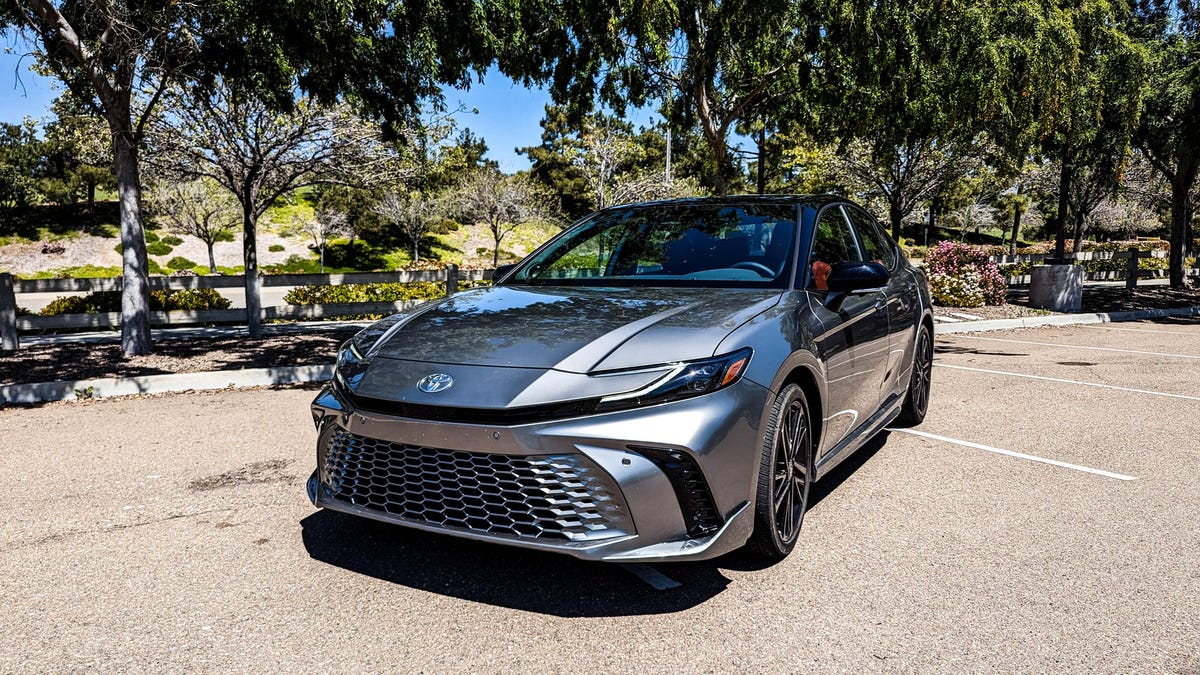The Toyota Camry has always been a lot of good things — reliable, efficient, comfortable — but it’s never exactly been thrilling to drive. That has changed with the introduction of the ninth-generation Camry. For 2025, Toyota’s trusty midsize sedan has been pared down to just one powertrain option, a 2.5-liter inline-4 engine mated to the company’s fifth-generation hybrid system. It’s that hybrid system that has helped enhance the Camry’s driver enjoyment.
During Toyota’s marathon drive event where I got to test one of these new Camrys for the first time, I was legitimately impressed. No, the Camry still isn’t a sports car, but if you’re the kind of person who loves a peppy daily driver, you’ll have a whole lot of fun with one of the ninth-gen Camry’s sporty trim levels. I wanted to know more about how exactly that happened, so after the event I followed up with Mark DeJongh, Chief Engineer of the Camry.
Compared with the previous powertrain system, DeJongh said via email that the fifth-gen system is lighter and more powerful. He added, “With the new system we were able to retune the powertrain for a better performance and reduced [noise and vibration]. We use the battery more, which allows quicker throttle response, especially when passing.”
You can absolutely tell. I found the new Camry’s acceleration to be quite responsive, especially when the car was set in Sport mode. Press the pedal, and you’ve got instant torque launching you forward. Paired with the retuned suspension courtesy of that hybrid system, you’ll notice the Camry sticks better to the pavement and responds more readily to any steering input.
I also asked DeJongh to break down the fifth-gen hybrid — what makes it special, what development goals Toyota had in mind, and he offered a super detailed summary:
In general, we concentrated on reducing size and mass of components including the HEV Battery, Motors and Transaxle. The other goal was concentrating on friction reductions to improve efficiencies while using lower oil viscosities. All while increasing the power and performance of the system.
HEV Battery: The battery is smaller and lighter with more power output. Cell quantity is reduced from 70 to 68, but output has increased from 37.3 kW to 38.2 kW. The assembled battery and housing have been more integrated. The fuse box is now integrated with the junction block. Wiring has also been reduced.
Transaxle: The transaxle is smaller and lighter with more power output. Gear sizes and gear tooth stresses have been reduced, NV has been improved and improved lubrication structure.
Motors: a new compact high powered drive motor was developed by adopting new materials (magnets and electromagnetic steel) and improved coil winding method to reduce the height of the coil end.
2.5L improvements also include mass and efficiency improvements such as adopting a smaller electrical water pump and using low viscosity 0W-8 engine oil.
I mean, think of the fifth-generation Toyota Prius that debuted with the 2023 model year, which uses this new fifth-gen hybrid setup. For years, the Prius had exactly one thing going for it: fuel economy. Drive a Prius for a while, and you might just forget that driving could actually be enjoyable. Then came the redesign, and suddenly the Prius had punch. The new Prius is still no sports car, but it’s a marked improvement over what came before, and that’s because the new hybrid system allowed Prius engineers to totally renovate the powertrain and suspension. Now, that mindset has been applied to the Camry.
I don’t know that the ninth-gen Camry’s transformation has been quite as stark as that as fifth-gen Prius, but it should be more than enough to encourage former Camry naysayers to sit up and take note.

